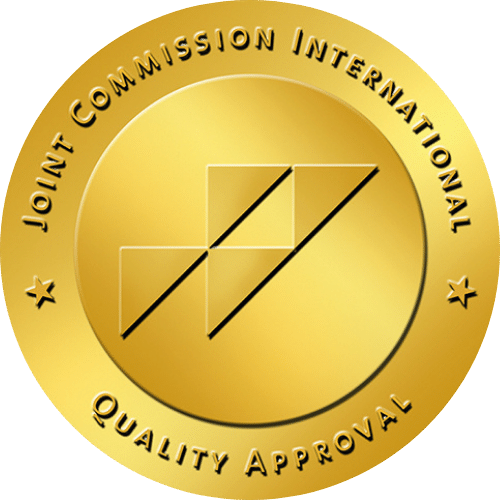4 min read

Have you ever felt like trying to understand Alzheimer’s is like reading a map in the dark? I say this because many families face that exact feeling when a loved one begins showing signs that don’t quite make sense. Alzheimer’s doesn’t arrive suddenly; it unfolds in stages, each with its own rhythm and challenges. Let’s talk about the 7 stages of Alzheimer’s chart, a guide to help you know what to expect—without losing hope or the human connection that truly matters.
How many stages of dementia Alzheimer’s disease are there?
Overview of the 7 stages of Alzheimer’s
Alzheimer’s progresses through seven distinct stages — like a slowly unfolding story, sometimes confusing, sometimes clear. It’s not just “forgetfulness” or “confusion”; each stage has its own nuances, challenges, and signals that tell us where we stand.
Why bother learning about all seven? Because knowing these stages can transform fear into preparation. The 7 stages of Alzheimer’s chart is less a sentence and more a compass guiding us through what lies ahead.
Differences between stages of dementia and Alzheimer’s
It’s easy to mix up Alzheimer’s and dementia. Think of dementia as the umbrella term for cognitive decline, and Alzheimer’s as its most common cause—like saying all dogs are animals, but not all animals are dogs.
When we mention stages of dementia Alzheimer’s disease, we focus on how Alzheimer’s specifically shapes that cognitive decline, helping us understand the impact on daily life and the brain’s health.
Description of the 7 stages of Alzheimer’s chart
Stage 1: No noticeable symptoms
Imagine sitting in a noisy café but still hearing your friend’s voice clearly. At this stage, outward signs are absent; the person seems unchanged, yet the brain is quietly rewiring behind the scenes.
Stage 2: Very mild cognitive decline
Here come the small slips: “Where did I put my keys?” or “What was that name again?” It feels like normal aging, but someone close might notice. The irony? Often, the person blames themselves for “just forgetting,” unaware it’s an early warning.
Stage 3: Mild cognitive decline
Confusion starts to deepen. Think of your car’s GPS losing signal on a familiar route. The person struggles to remember names or organize tasks, and the cracks begin to show.
Stage 4: Moderate cognitive decline
Now, signs become visible to friends and family alike. Forgetting recent events, mixing up dates, getting lost even in known places—this is when support becomes crucial, turning fear into care.
Stage 5: Moderately severe cognitive decline
When dressing or remembering important life details requires help, Alzheimer’s steps further in. Care takes center stage, and families often feel the weight of reality keenly.
Stage 6: Severe cognitive decline
Speech narrows, behaviors intensify, and daily activities demand assistance. It’s like watching the brain dim its lights, while the heart holds on fiercely.
Stage 7: Very severe cognitive decline (end stage dementia signs)
In this final stage, nearly all cognitive and physical functions fade. Loss of speech, mobility, and even recognition of loved ones occur. Yet, sometimes, that mysterious spark of connection remains—beyond words.
If you or a loved one are noticing changes in memory or behavior, understanding the 7 stages of Alzheimer’s disease is the first step toward taking control. Early diagnosis and professional neurological testing can make a significant difference in managing symptoms and planning care. Don’t wait for uncertainty to take over—schedule a consultation today with our expert team at Neurology Mobile. We’re here to guide you through every stage with personalized support and the latest diagnostic tools.
Signs and symptoms in late onset Alzheimer’s disease
Memory and orientation changes
Most Alzheimer’s cases begin after age 65, called late onset Alzheimer’s disease. Memory loss and disorientation become more evident, sometimes sparking confusion or anxiety. Picture being trapped in a maze with no map.
Impact on personal care
Forgetting turns into struggling with everyday tasks like dressing or bathing. It’s frustrating both for the person and their caregivers—a call for gentle hands and patient hearts.
Importance of diagnosis and neurological tests
Evaluating cognitive decline
Spotting these changes means it’s time to see a specialist. A neurological diagnosis confirms what you suspect and opens doors to treatments and personalized care plans. Imagine it as a lighthouse shining through fog.
How neurological tests help identify each stage
Neurological exams measure memory, language, orientation, and more. They pinpoint the exact stage, guiding care decisions. Think of them as a brain thermometer measuring health and decline.
Understanding the 7 stages of Alzheimer’s disease is crucial, but knowing where to turn for expert care makes all the difference. At Neurology Mobile, we offer specialized neurological services designed to support you and your loved ones at every stage of the journey. From comprehensive cognitive assessments to personalized care plans, our team is ready to help you navigate the challenges ahead.
Tools for Supporting Alzheimer’s Diagnosis and Care
To help families and professionals navigate Alzheimer’s, here’s a table comparing some key neurological and cognitive assessment tools used to evaluate stages and monitor progression:
| Tool Name | Purpose | Key Features | Advantages | Limitations |
| Mini-Mental State Exam (MMSE) | Cognitive screening | Quick test of memory, orientation, attention | Widely used; easy to administer | Limited sensitivity in early stages |
| Montreal Cognitive Assessment (MoCA) | Detect mild cognitive impairment | Detailed testing of multiple cognitive domains | More sensitive than MMSE in early stages | Requires trained administrator |
| Neuropsychological Testing | Comprehensive cognitive assessment | In-depth testing over several hours | Detailed profile of strengths/weaknesses | Time-consuming; costly |
| ADAS-Cog (Alzheimer’s Disease Assessment Scale) | Measures severity of cognitive symptoms | Used in clinical trials for Alzheimer’s | Sensitive to changes over time | Complex scoring system |
| Blood Biomarker Tests | Detect biomarkers linked to Alzheimer’s | Less invasive, quicker results | Emerging; may help early diagnosis | Not yet widely available or standardized |
Understanding Alzheimer’s stages can feel overwhelming, but the right tools and knowledge make a difference. These tests aren’t just numbers — they’re pieces of a puzzle helping us support those we love with dignity and care.
I invite you to embrace this knowledge not with fear, but as a way to act with love. Imagine how much smoother the journey becomes when you know what’s coming and can respond with kindness and readiness. No magic spells here—just shared humanity and real connection.
If you want to learn more about caring strategies or how to use these tools in everyday life, I’m here to help. Let’s keep this conversation going, and make every step count. Ready to take the next step? Reach out or subscribe for more insights and support.
Frequently Asked Questions about the 7 Stages of Alzheimer’s
How can I tell which stage of Alzheimer’s my loved one is in?
Identifying the stage involves observing changes in memory, behavior, and daily functioning. Early stages show mild forgetfulness and slight confusion, while later stages include difficulty with communication and self-care. A neurological evaluation with specific cognitive tests, like the MMSE or MoCA, provides a more accurate assessment to determine the current stage and guide care.
What are the key differences between Alzheimer’s and general dementia stages?
Dementia is a broad term for cognitive decline, while Alzheimer’s is the most common cause of dementia with a specific pattern of progression. Alzheimer’s stages follow a predictable sequence, characterized by gradual worsening of memory, thinking, and behavior. Other types of dementia may have different symptoms or progress differently, so knowing the exact cause helps tailor treatment and support.
Are neurological tests painful or difficult for patients with Alzheimer’s?
No, neurological tests are typically non-invasive and designed to be comfortable. They involve answering questions, completing simple tasks, or doing memory exercises. While some tests can be longer or require focus, professionals adapt to each person’s needs to minimize stress and ensure accuracy.
Can lifestyle changes slow down the progression through the 7 stages of Alzheimer’s?
While there is no cure, certain lifestyle factors—such as regular physical exercise, mental stimulation, a healthy diet, and social engagement—may help maintain brain health and potentially slow symptom progression. Early diagnosis and proper care planning are crucial for maximizing quality of life throughout the stages.
What support is available for caregivers as Alzheimer’s progresses?
Caregiving needs increase with each stage, especially in later phases. Support can include counseling, respite care, support groups, and professional home assistance. Accessing resources early helps caregivers manage stress and provide the best care possible for their loved ones.

